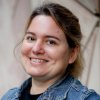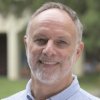Meet the team
We have a mix of academic excellence and living experience. Through our Bravehearts collaboration and our project advisory group, we have additional representation from victims and surivors, First Nations communities, law enforcement, the legal sector, and academic ethics.
Researchers
 Associate Professor Campbell Wilson: Principal Chief Investigator
Associate Professor Campbell Wilson: Principal Chief Investigator
Campbell is the Monash University Co-director of the AiLECS Lab. He undertakes research in AI and machine learning, with a particular emphasis on community safety applications. He has also undertaken research work in digital forensics, information retrieval and bioinformatics. He has held a range of senior leadership positions in the Faculty of Information Technology at Monash University including Associate Head of School and Associate Dean (International).
 Kelly Humphries: Research Fellow
Kelly Humphries: Research Fellow
Kelly is an expert in child protection and trauma informed approaches. An Author, speaker, coach and passionate child protection advocate, Kelly also has a lived experience as a Child Sexual Abuse survivor and law enforcement professional with over 16 years of policing experience. Kelly brings a multi-disciplinary focus to provide perspective, rigour and objectivity for our project.
To read more about Kelly and her work, please visit her web site.
 Dr Nina Lewis: Chief Investigator
Dr Nina Lewis: Chief Investigator
Nina is undertaking research and engagement on the provenance and use of image datasets for machine learning. Nina has a strong track record with applied research initiatives that bring multidisciplinary lenses to social challenges, and which connect lived experience and practice-based knowledge to research and policy.
 Dr Gregory Rolan: Chief Investigator
Dr Gregory Rolan: Chief Investigator
Greg brings a wealth of research experience in societal informatics – particularly around the theory and design of interoperable and person-centred systems that provide for authoritative information capture and organisation in support of legal, moral, and practical rights and needs of stakeholders in data and records.
 Carol Ronken: Chief Investigator
Carol Ronken: Chief Investigator
Appointed in 2003, Carol is responsible for leading the program of research at Bravehearts, a non-government organisation that aims to educate, empower, and protect children from sexual abuse and exploitation. She is passionate about ensuring Bravehearts is actively involved in research, policy and legislative development that aims to prevent, respond to, and reduce the incidence of child sexual assault in the community.
Project Advisory group
Jon Rouse
Jon Rouse is currently the interim Victim's Commissioner, appointed by the Queensland government to assist victims of crime in that State, and a Professor of Practice with AiLECS lab at Monash University. Recently retired from a distinguished career in police service, ex-Detective Inspector Rouse has spent several decades investigating and working to counter crimes against children. In 2001, Jon commenced at Task Force Argos where he implemented Australia's first operation proactively targeting internet child sex offenders. He was instrumental in gaining national support for the development of the ANVIL project (Australian National Victim Image Library) to assist police officers to identify the child victims depicted in images seized from sex offenders.
Jon has dedicated significant time to global awareness of child sexual abuse, delivering training and presentations on online child exploitation investigations to law enforcement officers across Australian and internationally. Jon is recipient of four Commissioners Certificates for operational leadership, two Excellence awards for Child Protection Prevention, the Queensland Police Medal, the National Service Medal, the Exemplary Conduct medal, the National Police Medal and in May 2018 the 'Champion for Children Award' in New York from the International Centre for Missing and Exploited Children. He was the QLD recipient of Australian of the Year in 2019.
Katie Wright
Katie Wright is an Associate Professor (Sociology) at La Trobe University who conducts historically grounded sociological research across three intersecting areas: social change activism, public inquiries into institutional child abuse; and the social and cultural influence of psychological knowledge.
Katie leads the National Centre funded project Creating safer futures: Raising public awareness of child sexual abuse among young adults through digital storytelling and an ARC funded project examining child rights discourse and activism against institutional child abuse. Katie recently completed another ARC funded study of public inquiries into childhood maltreatment and she leads the collaborative digital project, The age of inquiry: A global mapping of abuse inquiries.
Judy Courtin
Judy Courtin is a lawyer who commenced legal practice later in life, following the disclosure by one of her nephews about the sexual abuse committed against him as an 11-year-old child. In 2015, Judy completed her PhD into sexual assault and the Catholic Church and whether victims were finding justice. Three years later she commenced her legal practice representing victims of institutional abuse.
Judy’s philosophy means that her practice is client focused. As well as entering a legal process, clients are encouraged to think about what is important for them – that is, what does justice or accountability look like? Further, what are the elements of a legal claim that might be concerning? This holistic approach provides additional and valuable support for victims and survivors of child sexual abuse.
Stephanie Hamilton
I am a Ghungalu woman from Central Queensland, my Moiety Line is from Woorabinda where my Grandmother is from, Woorabinda is an Aboriginal Settlement that is located approx. 170km inland from Rockhampton.
I grew up in Rockhampton Central Queensland and have lived on the Gold Coast for the past 10 years. I am an only child with 5 children (I made up for being an only child), and a grandparent of 7.
I have been employed within the Human Services Sector for nearly 20 years and have walked alongside and supported all genres of people in particular First Nations people.
Throughout my career I have supported Young people, Youth and Adults with – Housing/Homelessness, Mental Health, Child Protection, Kinship Care, Providing Cultural Education/Lens, Case Management, After-School Programs, Parenting Programs, Educational Programs, Crisis Intervention, and Domestic & Family Violence education, intervention and prevention.
My current role within Bravehearts is Child & Family Advocate within the Turning Corners Team where I support families and young people referred by police to enter into the Restorative Justice Process.
I also am the Chair of the RAP (Reconciliation Action Plan) Committee where I provide guidance into building a Reconciliation within Bravehearts as a whole and throughout the communities building the Cultural Lens and Safety in particular - to build a place that is Culturally Safe for our First Nations Families to engage and strengthen their understanding of any impacts that Childhood Sexual Abuse has on young people and families holistically.
Scarlett Franks
Scarlett is a survivor-researcher at The University of Sydney, where she contributes to projects exploring stigmatised adaptations to trauma and human rights violations, through a critical lens. Scarlett serves on the Survivor College of the National Centre for Action for Child Sexual Abuse; the board of directors of the Grace Tame Foundation; and the Advisory Panel of the NSW Office of the Anti-Slavery Commission.
‘Charlie’
My name is Charlie, and I would like to briefly introduce myself as a member of the Advisory Group regarding Survivor perspectives on institutional use of CSAM. I currently reside in Queensland and have a passion for research that can impact policy and change for survivors of childhood sexual abuse in Australia.
I have a Masters in Social Work (MSW) and currently practice as a social worker and NDIS support coordinator in my own business. I have previously worked in child protection, the disability sector and early family support intervention, having completed extensive training in trauma, disability, mental health and law. My role as clinician in child safety required me to work with children and families that have been affected by multiple types of trauma, including child sexual abuse within the family and in wider groups in society.
My professional background grew out of my experiences in my own life. I am a survivor of multiple forms of trauma, including child sexual abuse. This has meant a long journey of recovery/healing, involvement in the legal system and fighting the many barriers that present themselves along the way.
I have learnt a lot over the last few years, about myself, and the systems in which survivors find themselves. I have a keen interest in improving the range of supports for survivors. I hope to use my professional and personal experiences to contribute to the Advisory Group.
Kerry Gleeson
Kerry Gleeson, Honours Majoring in Criminology & Education, Health, and Social Work, STARS Licensed (Systemic Tailored Assessment for Responding to Suicidality) Reiki Master Practitioner and Holistic Counsellor. A passionate trauma informed advocate for survivors of Childhood Sexual Abuse, Family Domestic Violence, and Suicide postvention; having lived these experiences herself, she has an authentic, compassionate approach to recovery and healing. Promoting advocacy and support with the hope to reduce suicide, CSA and the impact of trauma.
Empowering individuals and their families to a journey of healing, support, and connection.
Kerry is a trained Lived Experience Advocate, currently working as peer CARE Companion regional coordinator in Sydney for those with Lived / living Experiences of trauma.
Henry Linger
Henry Linger is an Associate Professor in the Department of Human Centred Computing, Faculty of Information Technology, Monash University. He has a deep understanding of the intersection of technology and research ethics, and is a co-chair of the Monash University Human Research Ethics Committee. (NB - Henry excused himself from consideration of the ethics application for this project).
Henry conducts research to explore how work is being transformed by digitalisation and the impacts of these transformations on how we work, what we do, as well as the broader societal effects of digitalisation. His research is directed to understanding how work is actually done by examining the pragmatic, conceptual and cognitive practices that underlie that work. The aim is to understand work tasks holistically in order to inform the design of appropriate and relevant Information Systems. His research involves national and international collaborations and has been conducted across a broad range of domains including defence, meteorology, epidemiology, immunology and clinical and management aspects of healthcare, including contributing to research in social learning and organisational transformation as a Research Associate at the Defence Science and Technology Group.
Jade Purtell
Jade Purtell is a transdisciplinary researcher consolidating and integrating research evidence and practice wisdom locally and internationally to improve care systems and care experiences. Jade works across academia and the community sector to promote young people's participation in policy development and decision-making. Jade has led several participatory research projects including the Real-time rights-based recordkeeping governance project in the Department of Human Centred Computing, the Peer work models for transitions from care project in the Department of Social Work and the Education and out-of-home care project in the Faculty of Education.
Jade’s PhD project focused on participatory theory and research with care leavers parenting through transitions from care. Jade has also worked with the Victorian Government Department of Families, Fairness and Housing on behalf of the CREATE Foundation to develop the Youth Expert Advisory Group participation model co-implementing extended care reforms. Jade has developed the Adaptive Participation Model to provide a pragmatic guide to implementing trauma-informed, extrospective and impactful participatory initiatives in research, policy and practice.
